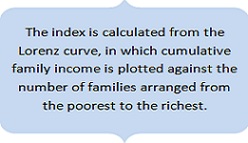Thanks to deregulation, budget discipline and an extensive overhaul of the welfare state, Sweden's economy has been transformed in the two decades since its banking crisis. The new model, broadly, retains most of the services but has cut the taxes and transfers. Inequality is an incentive for most people to work harder and boost productivity when democratic conditions and the rule of law prevail. It is a proven fact that inequality encourages most people to invest in their education and that of their children to improve their chances in society. Redistribution, in contrast, brings inefficiencies as higher taxes and government handouts deter hard work. The bigger the state and government, the greater the distortion of private incentives.
SWEDEN - The New Economic Model
A bit more unequal, a lot more efficient
Oct. 13.─ Saltsjöbaden, a charming seaside town on the outskirts of Stockholm, has an iconic place in Swedish economic history. The "Saltsjöbaden Accord", signed there between unions and employers in 1938, ushered in the consensus system of labour relations that remains a pillar of Sweden's economic model. Nowadays the town is famous for a different reason. It is one of Stockholm's fanciest suburbs, and the setting for "Sunny Side", a popular television comedy that pokes fun at the country's new rich. In the show, Saltsjöbaden's yuppy residents fret over how to get their babies into the best nursery. A badly behaved child is threatened with banishment to Fisksätra, a poor enclave a few train stops away, where immigrants from 100 countries cram into dilapidated blocks of flats.
 The most equal country in the world is becoming less so. Sweden's Gini coefficient for disposable income is now 0.24, still a lot lower than the rich-world average of 0.31 but around 25% higher than it was a generation ago. That rise is causing considerable angst in a nation whose self-image is staunchly egalitarian. A leftist group caused a media hubbub earlier this year by organising a "class safari" bus tour of Saltsjöbaden and Fisksätra. Opposition leaders insist that the ruling centre-right party is turning Sweden into America.
The most equal country in the world is becoming less so. Sweden's Gini coefficient for disposable income is now 0.24, still a lot lower than the rich-world average of 0.31 but around 25% higher than it was a generation ago. That rise is causing considerable angst in a nation whose self-image is staunchly egalitarian. A leftist group caused a media hubbub earlier this year by organising a "class safari" bus tour of Saltsjöbaden and Fisksätra. Opposition leaders insist that the ruling centre-right party is turning Sweden into America.
Anders Borg, the finance minister, vehemently disagrees. Sweden, he argues, has gone from being a stagnant benefit-based society to a vibrant modern economy with a remarkably small rise in inequality. Its experience, he says, shows that dynamism and egalitarianism do not need to be at odds.
The facts bear him out. Thanks to deregulation, budget discipline and an extensive overhaul of the welfare state, Sweden's economy has been transformed in the two decades since its banking crisis. The new Swedish model is quite different from the leftist stereotype.
Capitalism in Sweden is not inherently a lot more egalitarian than in other countries. Before the government steps in, the country's Gini coefficient for the working-age population is 0.37, close to the OECD average and higher than Switzerland's. Wage disparities are narrower than in Anglo-Saxon countries, thanks to centralised bargaining between unions and employers that sets minimum wages in different sectors ...
[ Full text ]